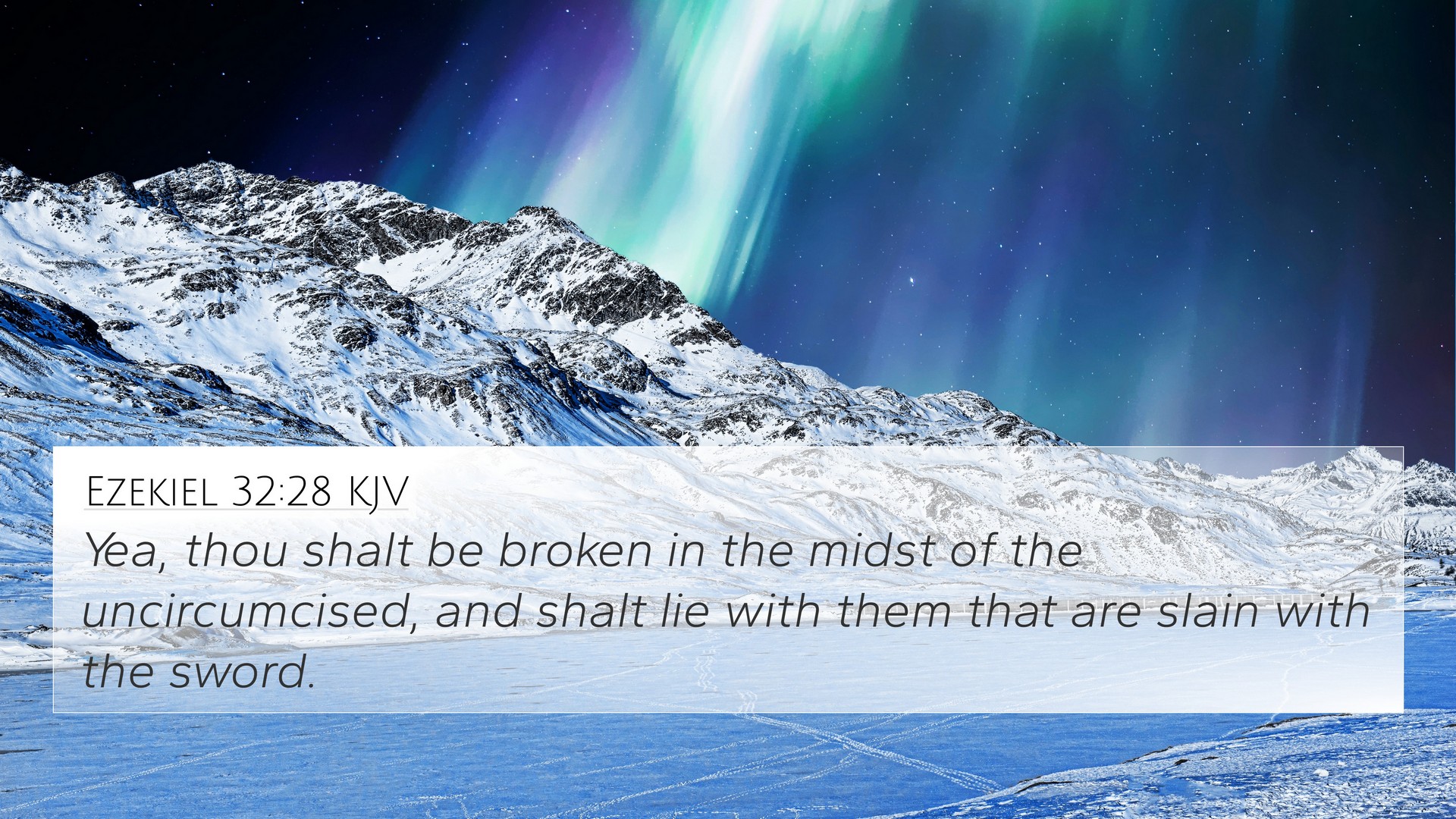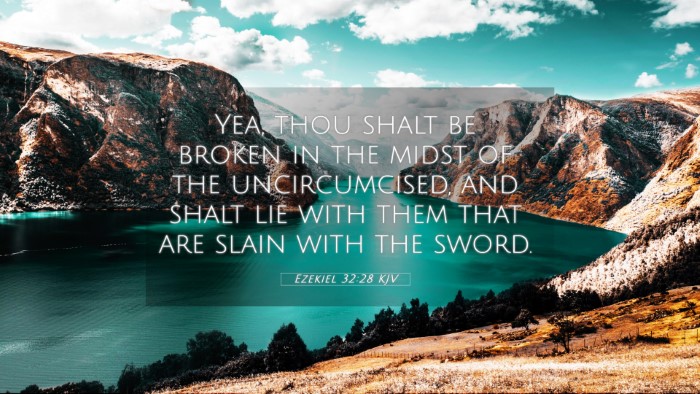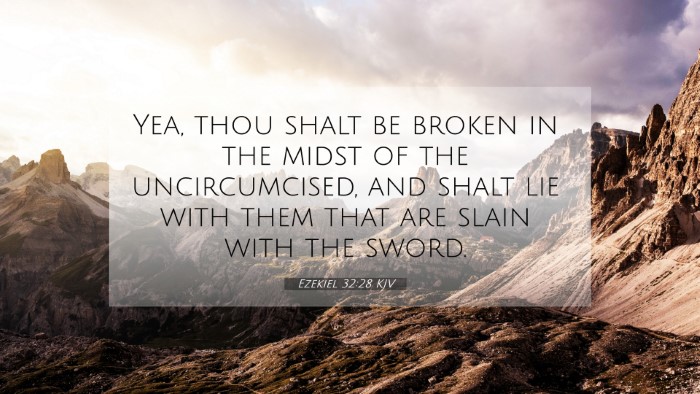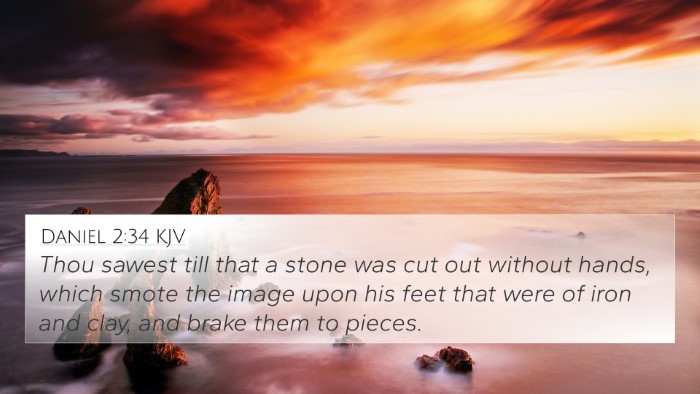Ezekiel 32:28 - Summary and Insights
Verse Context: Ezekiel 32:28 reads, "Yet you shall be broken and lie among the uncircumcised, with those slain by the sword." This verse is part of a prophecy concerning Egypt's downfall and its fate among the nations.
Understanding Ezekiel 32:28
This verse serves as a vivid proclamation about the consequences of prideful nations, particularly Egypt, who historically relied on their might rather than on God. The imagery of being "broken" and lying among the "uncircumcised" reflects the ultimate shame and defeat that awaits those who oppose God's purposes.
Combined Insights from Public Domain Commentaries
Matthew Henry suggests that this verse symbolizes the disgrace and eventual defeat that befalls those nations that do not recognize the sovereignty of God. He emphasizes that Egypt, once a great power, would find itself felled and dishonored among those they deemed inferior.
Albert Barnes provides additional context by indicating that the "uncircumcised" represents those who have not entered into a covenant relationship with God. This points to a state of spiritual desolation and signifies that Egypt's pride has led to its downfall. Barnes also highlights that this verse reinforces the idea of divine judgment against nations that resist God’s authority.
Adam Clarke further augments this understanding by discussing the implications of 'lying with the slain.' This phrase emphasizes total defeat—nothing remains of their former glory. Clarke interprets this as not only a physical battle lost but also a symbol of spiritual ruin, with Egypt finding themselves among the spiritually ineffectual.
Bible Cross-References
Understanding Ezekiel 32:28 is enhanced through several other passages that provide connections between Bible verses. Here are some noteworthy references that echo similar themes:
- Ezekiel 30:18 - Discusses the impending doom of Egypt in relation to its military strength.
- Ezekiel 31:14 - Speaks about the fall of a majestic tree symbolizing Egypt’s pride and strength.
- Isaiah 19:17 - Prophesied about Egypt’s devastation and shame from other nations.
- Jeremiah 46:25 - References God's judgment against Egypt which aligns with themes of destruction and punishment.
- Psalm 137:9 - The humiliation of enemies is metaphorically captured, representing their dismantling.
- Isaiah 14:9-11 - Highlights the plummet of great nations into the grave, echoing a similar fate.
- Revelation 19:20 - The end of those opposed to God’s reign parallels the judgment against Egypt.
- Romans 15:4 - Encourages understanding the past writings to gain hope for the future, signifying inter-Biblical relevance.
- 1 Corinthians 5:5 - Speaks on being delivered to destruction, drawing a thematic connection to punishment.
- Proverbs 14:34 - Highlights that righteousness exalts a nation while sin brings shame, fitting the theme of Ezekiel's warning.
Thematic Connections
The themes of pride, downfall, and divine judgment resonate throughout Scripture, creating a tapestry of messages about the character of God in dealing with nations and individuals who defy His will.
For Bible scholars and students, these passages provide a framework for Bible verse cross-references and insights into the intertwining narratives that illustrate God's sovereignty. Tools for Bible cross-referencing are beneficial in digging deeper into these connections.
Conclusion
In conclusion, Ezekiel 32:28 serves as a poignant reminder of the fate that befalls nations that turn away from God. Through the insights gleaned from public domain commentaries and the connections highlighted with other Scripture, we can better appreciate the overarching themes of judgment, sin, and the grace that God offers even amidst His wrath.
This verse, framed within the larger narrative of both the Old and New Testaments, resonates as a call for humility before the Almighty, urging nations and people alike to seek His ways over their own understanding.



